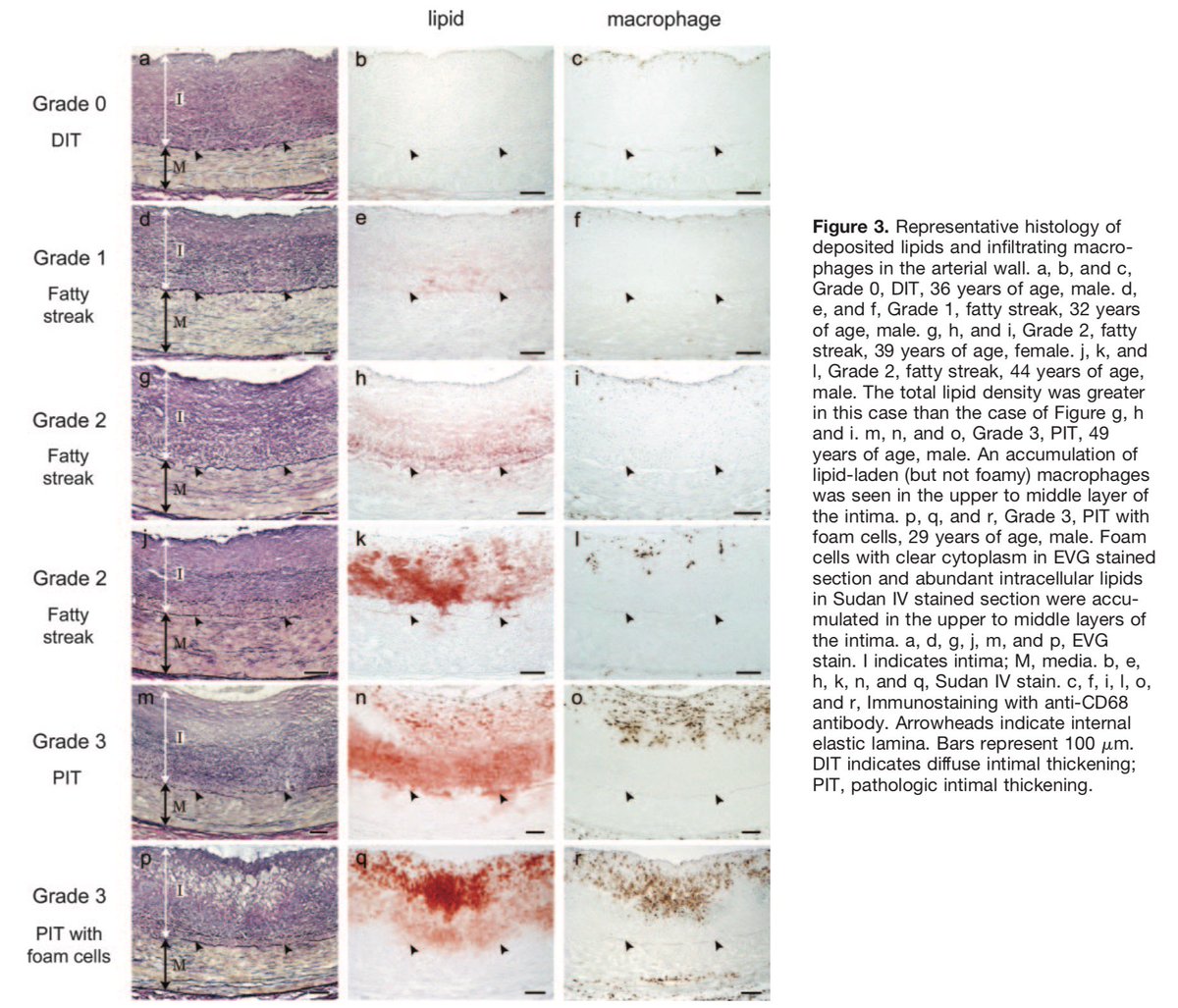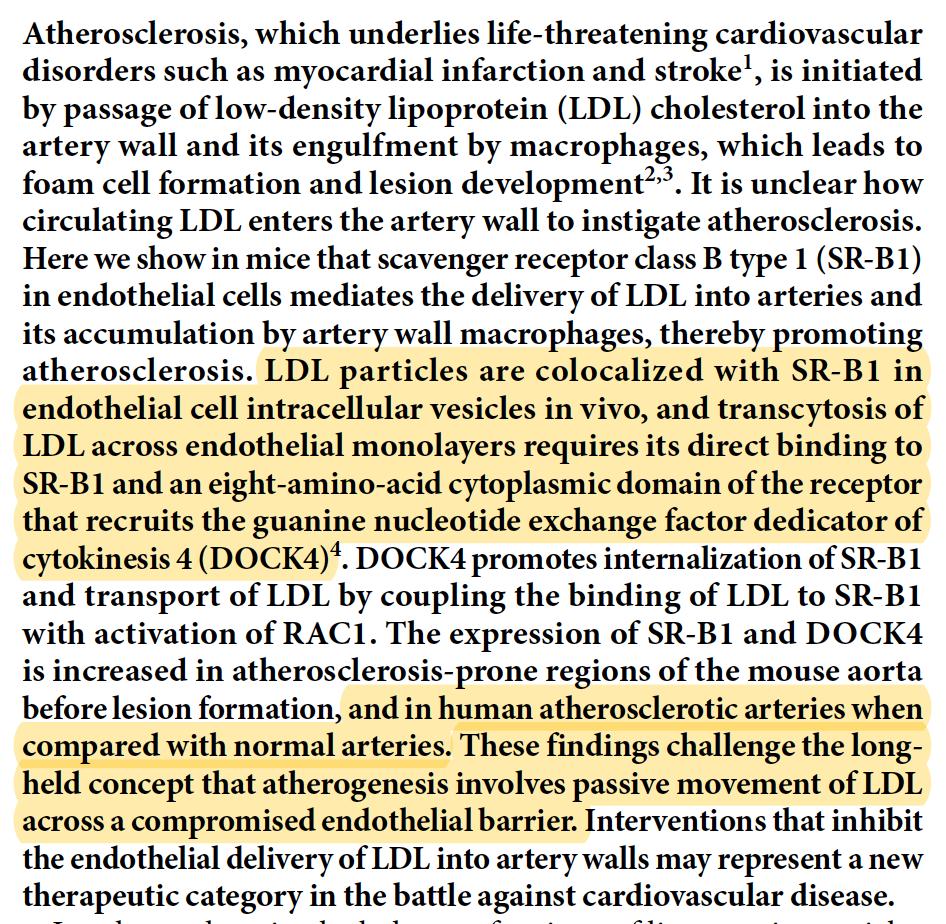My guest appearance on #SigmaNutritionRadio just dropped where I have a very friendly #debate with @NutritionDanny and Alan Flanagan on #LDL #Cholesterol, #ApoB, #Atherosclerosis, #AllCauseMortality & much, much more!
sigmanutrition.com/episode321/
(1) Why I favor the "Lipid profile-centric" model over the "Lipoprotein-centric" model.
(2) How this is relevant to "the triad" ⬆️LDL⬆️HDL⬇️TG
(3) Why this triad is of particular interest to all of us as it relates to not just cardiovascular disease, but in particular -- all cause mortality (ACM)
I honestly couldn't remember how well I did in getting these core points across, thus relistening now...
Discussing the triad, points to myself as a key contributor to raising interest in it (particularly in the #LowCarb community)
However, there is one characterization I'd disagree with, but the assumption is understandable...
I certain want to emphasize that I felt likewise with both Danny and Alan. They were extremely professional and very courteous.
(a) I intro "Atherogenic Dyslipidemia" (⬇️HDL+⬆️TG+⬆️sdLDL)
(b) Many going #LowCarb see the reverse of this, which is what I usually refer to when I say "triad" (⬆️LDL+⬆️HDL+⬇️TG)
Aside: Really, really glad I did this right off the bat. This is so incredibly key to understanding where I'm coming from and the concept of "systemic atherogenicity"
(This is certainly something I strongly disagree with)
Possibly this?: ncbi.nlm.nih.gov/pubmed/29146277
"And what I find is quite astonishingly against all cause mortality.."
This association I'm discussing above is effectively unaddressed. It is assumed to be "reverse causality", but without supporting evidence to that assertion, which we could easily obtain via longitudinal data...
Again (as always), I welcome further nuance and rebuttal...
At a minimum, you'd want to know why.
(Though I am glad I still discussed the other common means of entry anyway, as is relevant to athero)
27:50 I follow up discussing how well this fits in with the lipid profile-centric vs lipoprotein-centric models, discussing CETPi, and why I think it was a poor outcome...
But I also mention how I wish they would've captured and reported All Cause Mortality.
ahajournals.org/doi/full/10.11…
ncbi.nlm.nih.gov/pubmed/11176761
This is an extremely critical consideration to the larger question of risk and the lipid profiles themselves...
Important to emphasize right now that my long list is due to the tireless work of @siobhan_huggins and easily one of the best reads on this topic found at our site here: cholesterolcode.com/lipoprotein-po…
Still... this deserves three facepalms 🤦♂️🤦♂️🤦♂️
(Note to self: stop guesting while sleep-deprived)
And this is a key point we should return to later and why I wanted to see ACM as well.
Alan - "Yes, that's what I'm saying..."
This is important, because it's a very clear divide in our hypotheses for outcomes...
Again, I'm happy we covered this coming at it from a different direction, but getting back to the same central point.
Will we generally see those with ⬆️LDL+⬆️HDL+⬇️TG generally live longer than those ⬇️LDL+⬆️HDL+⬇️TG?
-Me, I think that's what we'll see
-Alan would expect we'd see the opposite
So far, NHANES appears to support this, but we need more data to compare
"I would actually agree with you if that's what the evidence showed....That basically if we could look at high and low LDL in every possible cohort group at scale and it shows that those people with high LDL are dying more than those likewise cohorts of low LDL..."
Alan: "But to my mind, that's what the Framingham Offspring study somewhat showed in terms of risk. I know mortality wasn't an outcome if I remember correctly..."
- I discuss comparisons with LDL vs smoking when looking at likewise cohort outcomes with ACM
- How I was looking at the beginning with LDL assoc with longevity
- Is it reverse causation? But I couldn't find any studies that showed a longitudinal change given a long enough duration of exclusion, for example.
- I mention the Framingham 18 year assoc with low LDL and cancer onlinejacc.org/content/59/13_…
I'll return to this thread in a bit... crazy to think I'm only through 46m with still 72m to go!]
Me: “And this is where I have to say this, and I don’t say this to be contrarian, but here’s the one problem. The one problem is saying that you’re dying less of Disease X is exactly equivalent to I’m dying more of Disease Non-X.”
(Not my best articulation, but hopefully got the gist 😂)
“I certainly feel I’m leaning much more into the camp of Response to Injury...”
Alan: “Personally, I feel that’s too crude a delineation. I’ve seen those arguments of [RtI vs RtR], and for the biological systems we’re talking about...”
“Retention is a big part of the process, sure, but so too is the initial injury.”
While I did transcribe a lot of this above, I’d want you to instead listen to the actual podcast for full context.












